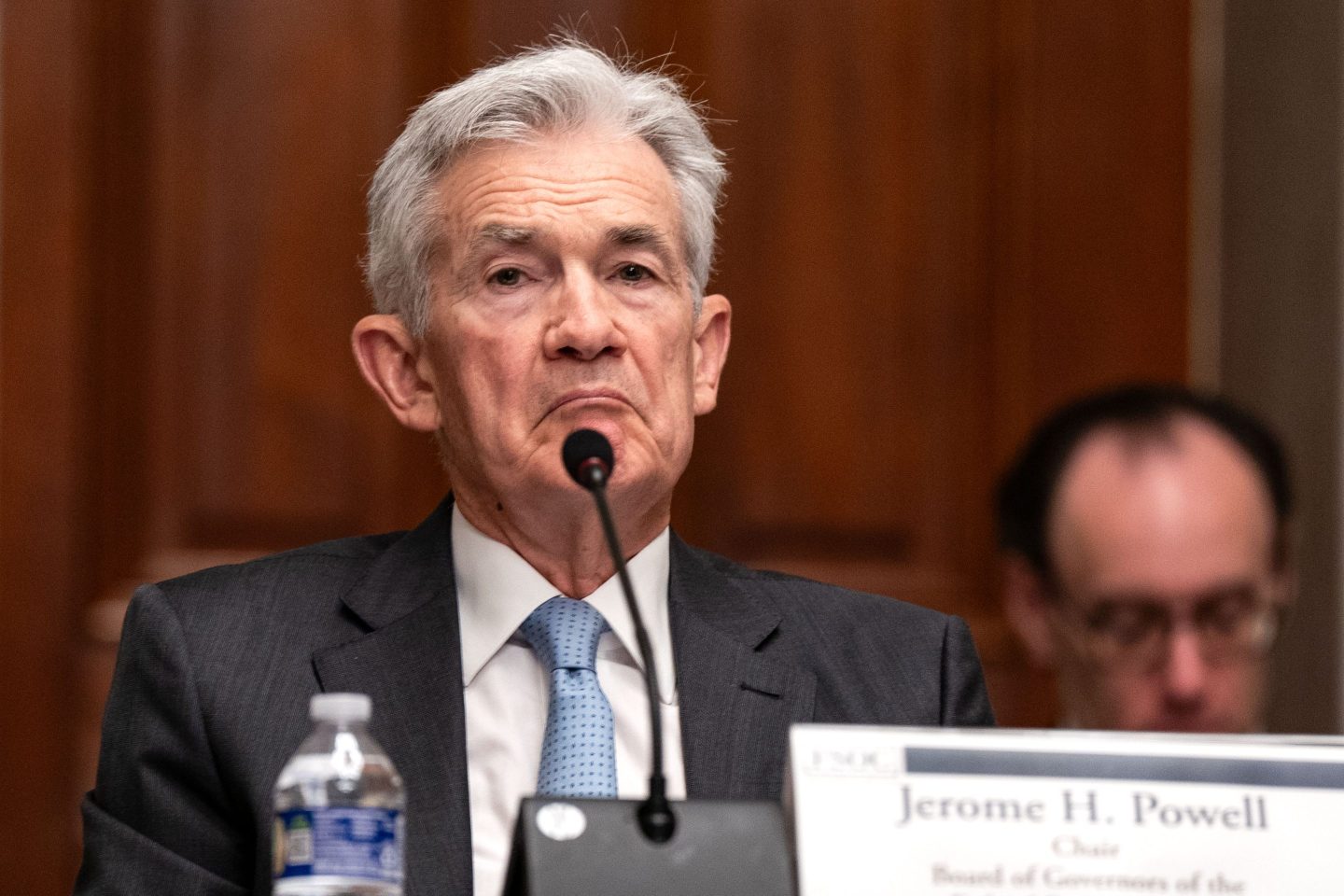The Federal Reserve has talked financial markets into creating an easier environment, which paradoxically makes lowering rates a more difficult task for the central bank, a top economist said.
The Bloomberg U.S. Financial Conditions Index indicates that the availability and cost of credit across money, bond, and equity markets are significantly more favorable today than when the Fed began raising rates in March 2022, according to Apollo chief economist Torsten Sløk.
That’s due to the central bank’s pivot in November, when Chairman Jerome Powell signaled that inflation was cooling enough to halt rate hikes and start thinking about when rate cuts could begin.
Wall Street interpreted the comments, incorrectly as it turned out, to mean easing would be imminent and that as many as six cuts would happen in 2024, sparking a massive stock market rally.
In a blog post on Wednesday, Sløk estimated that the S&P 500 stock index has added $9 trillion in market cap since then and compared it to the $19 trillion in consumer spending last year.
“In other words, in a few months, the household sector has experienced a windfall gain corresponding to about 50% of last year’s consumer spending!” He wrote.
Meanwhile, the federal government has been spending trillions of dollars on infrastructure, green-energy initiatives, and semiconductor production capacity.
As a result, the economy has remained strong as this fiscal stimulus continues to fuel growth while easier financial conditions offset Fed rate hikes, Sløk noted.
In fact, the economy was so strong earlier this year that inflation readings came in above forecasts and showed signs of reaccelerating. That forced Powell to warn that rates could stay high for “as long as needed” because inflation appeared to be taking longer than anticipated to reach the Fed’s 2% target.
Still, he later acknowledged that further rate increases were unlikely and reaffirmed that the Fed’s next move—whenever that will be—is likely a rate cut.
And that’s precisely the mistake Powell is making, in Sløk’s view.
“Looking ahead, with the stock market hitting fresh all-time highs and fiscal policy still supportive, the expectation in markets should be that the economy will continue to accelerate over the coming quarters,” he wrote. “You can call this the Fed Cut Reflexivity Paradox: The more the Fed insists that the next move in interest rates is a cut, the more financial conditions will ease, making it more difficult for the Fed to cut.”
To be sure, GDP growth slowed in the first quarter from the fourth quarter, and was revised down to an annualized rate of 1.3% from a prior reading of 1.6%. The latest report also showed that fiscal stimulus was having a smaller effect.
But consumer spending on services remained strong, and more recent data on jobless claims showed the labor market continues to hold up.
Meanwhile, minutes from the Fed’s last policy meeting revealed that the economy’s resilience in the face of rates at 23-year highs had prompted some officials to wonder whether all their tightening was exerting enough pressure on growth. High interest rates “may be having smaller effects than in the past,” the minutes said.













